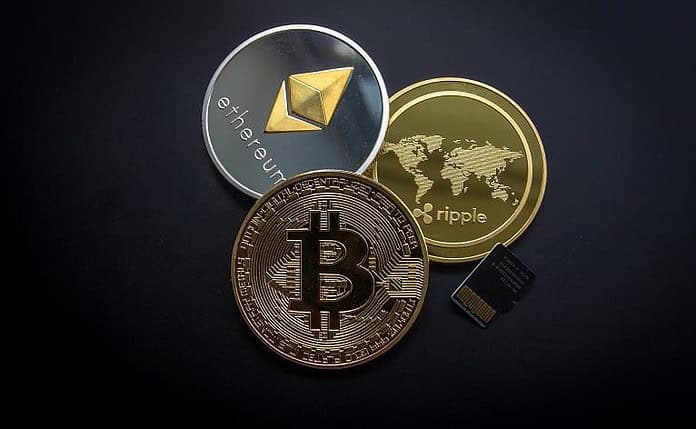In recent years, the financial landscape has witnessed a high-quality transformation with the appearance of blockchain generation and the rise of virtual property. One of the most widespread trends in this area is the tokenization of assets, which lets buyers symbolize ownership of real international assets digitally. Learn more here if you are looking for a free and easy-to-use website that helps people find an education company to start learning about investments.
Asset tokenization is the process of converting ownership rights in real-world assets into digital tokens on a blockchain. These tokens, often referred to as safety tokens or virtual securities, constitute possession of tangible property consisting of real estate, enterprise equity, first-rate artwork, commodities, and more.
How Asset Tokenization Works
Asset Identification: The first step in asset tokenization is identifying the real-world asset to be tokenized. This may be something from an industrial property to stocks in a personal employer or even paintings.
Legal Structure: Once the asset is identified, a legal structure is installed to facilitate the tokenization process. This includes defining possession rights, compliance requirements, and governance mechanisms.
Tokenization: The asset is then tokenized by issuing virtual tokens on a blockchain. Each token represents a fragment of possession inside the underlying asset and is subsidized with the aid of the asset’s value.
Smart Contracts: Smart contracts, self-executing contracts with predefined terms and situations, are used to manipulate the possession, transferability, and trading of asset tokens. These smart contracts automate compliance, facilitate peer-to-peer transactions, and ensure transparency.
Secondary Market Trading: Asset tokens can be traded on secondary market structures, supplying buyers with liquidity and flexibility. By buying and selling on blockchain-based trading exchanges, traders can comfortably purchase, sell, and alternate asset tokens without the need for intermediaries.
Benefits of Asset Tokenization
Fractional Ownership: Asset tokenization allows fractional ownership of high-cost assets, making investments more reachable to a broader variety of buyers. By dividing belongings into smaller gadgets, traders can diversify their portfolios and invest in belongings that were previously out of reach.
Liquidity: Asset tokenization provides extra liquidity compared to standard asset training consisting of real estate or private equity. By trading on blockchain-primarily based exchanges, traders should buy and sell asset tokens quickly and effortlessly, reducing the time and fee associated with conventional transactions.
Transparency: The blockchain era presents transparency and immutability, allowing traders to track the possession and transfer of asset tokens in real-time. This transparency enhances consideration, reduces the threat of fraud, and affords buyers a clean view of their investments and their underlying assets.
Global Access: Asset tokenization enables international access to funding possibilities, breaking down geographical limitations, and democratizing access to capital markets. Investors from around the world can take part in tokenized asset services, opening up new avenues for capital formation and investment diversification.
Challenges of Asset Tokenization
Regulatory Compliance: Asset tokenization is subject to securities regulations and ought to follow applicable laws, along with Know Your Customer (KYC) and Anti-Money Laundering (AML) necessities. Regulatory compliance can vary depending on the jurisdiction and asset class, posing demanding situations for issuers and investors.
Lack of Standards: The asset tokenization market remains nascent, with constrained requirements and nice practices for token issuance, buying and selling, and custody. The lack of industry standards can create interoperability troubles, regulatory uncertainty, and investor confusion.
Technical Complexity: Implementing asset tokenization initiatives may be technically complex, requiring knowledge in blockchain generation, clever agreement development, criminal compliance, and cybersecurity. Technical complexity can pose demanding situations for issuers and buyers, especially those new to blockchain-based solutions.
Market Fragmentation: The asset tokenization market is fragmented, with a couple of systems, protocols, and ecosystems competing for marketplace share. Fragmentation can create interoperability issues, liquidity silos, and inefficiencies, compromising the scalability and adoption of asset tokenization solutions.
Opportunities for investors
Asset tokenization affords precise possibilities for buyers to diversify their portfolios, get admission to formerly inaccessible markets, and unencumber liquidity in illiquid assets. By investing in tokenized property, buyers can gain from fractional possession, enhanced liquidity, transparency, and global access to funding possibilities.
Conclusion
Asset tokenization represents a groundbreaking advancement inside the international finance industry, presenting buyers with extraordinary access to real international property in a digital format.
While challenges remain, the capabilities and benefits of asset tokenization are simple, paving the way for a more inclusive, efficient, and obvious monetary system. As the asset tokenization ecosystem continues to adapt and mature, it has the capacity to reshape the destiny of investing, democratize access to capital markets, and unlock new possibilities for traders around the world.







